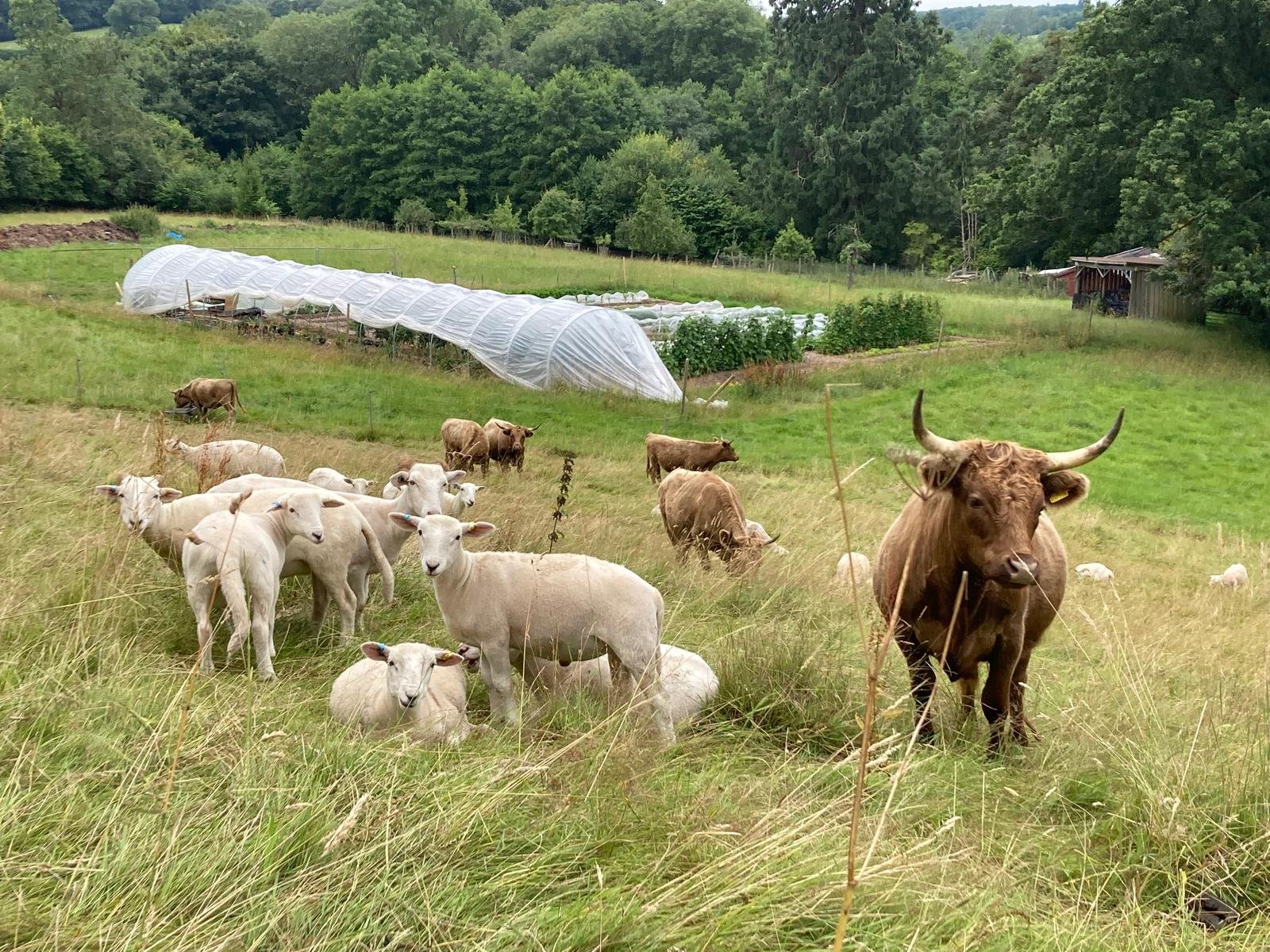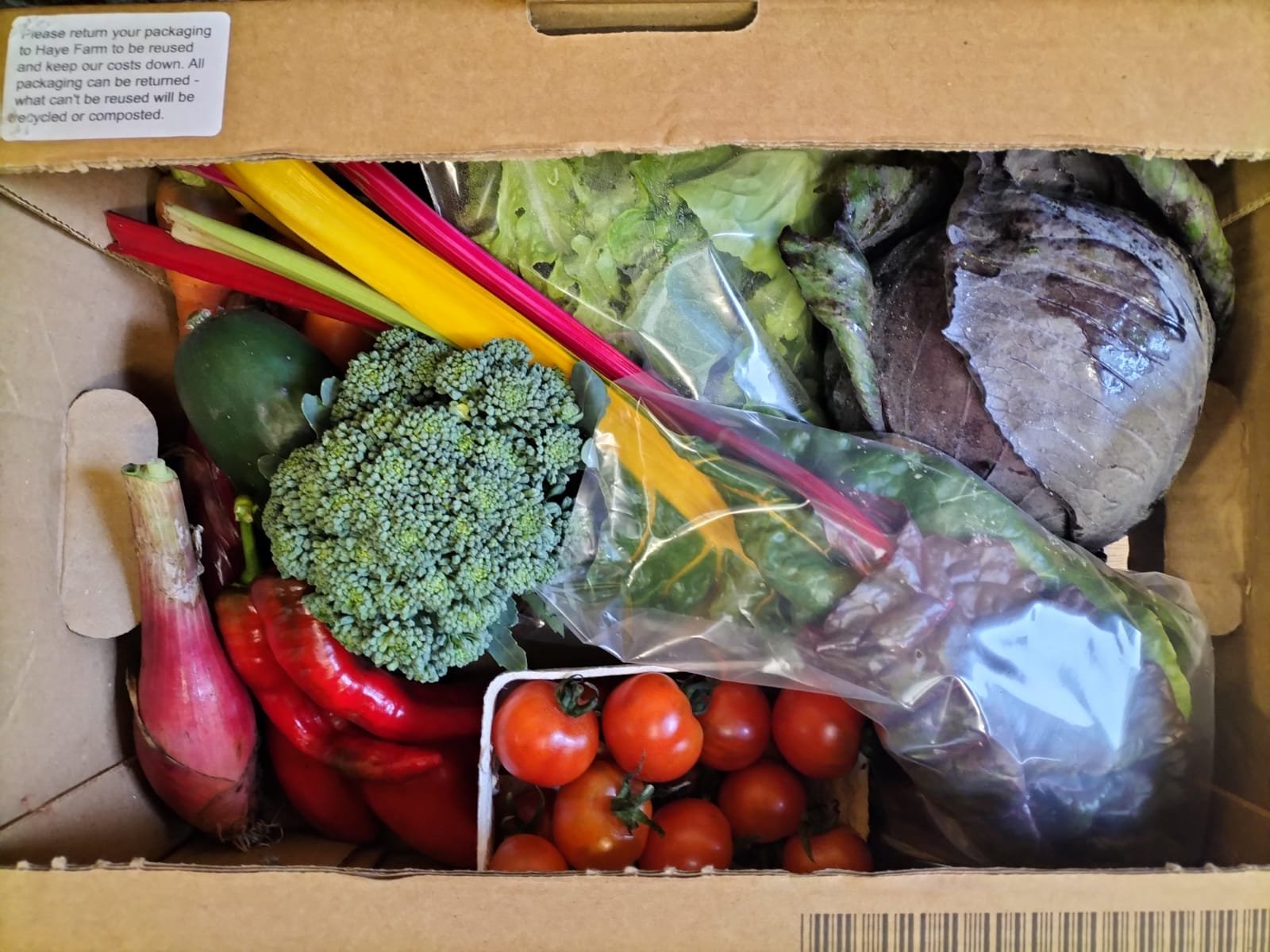
The farm is currently owned by Stuart Norgrove, having been born and raised on the farm has had a guiding impact on its destiny. From learning about permaculture in the early 90s, the thinking behind the management has always gone against the commercial grain, by saying no to fossil fuel based chemical fertilizers and chemicals such as herbicides, fungicides and insecticides, we have allowed nature to flourish; using tools from regenerative farming we can create a healthy farm to grow delicious nurturing food and create a thriving local community.
Our Core Aims Are To:
Produce high quality, nutrient dense food for the local community.
Increase biodiversity across the farm landscape.
Connect with the local community by providing opportunities to access the land.
Be a viable business resilient to climatic and economic uncertainties.
How do we achieve our core aims?
We can achieve our core aims by looking beneath our feet at the soil. By focussing on creating healthy soil full of microorganisms, allows the rest of the ecosystem to flourish. This is the main premises of regenerative agriculture. Using techniques such as mob-grazing, allows us to have healthier animals that have a diverse diet of pasture and forage reducing the need for us to use routine wormers and anti-biotics. Looking at the farm holistically allows us to build connections and put in place systems such as creating compost for the market garden from the animal manure, using mulches from tree chippings for the forest garden.
Produce high quality, nutrient dense food for the local community.
We achieve this aim by selling all our produce directly from the farm. We offer Dexter beef & lamb from the animals, seasonal veg boxes from the no-dig market garden, fresh fruit when in season; as well as apple juice and the occasional preserve. In the future we hope to add more products available to better achieve this aim, this could well be poultry, eggs, nuts & dried fruit, products processed from our produce such as apple cider vinegar and more preserves.
Increase biodiversity across the farm landscape.
A diverse ecosystem is important if we want to build resilience and support all forms of life. Monitoring is essential for this to make sure we are achieving this aim. We take yearly bird records, do regular soil monitoring and look through this microscope at the life in our soils. We try to create more habitats for wildlife by adding in tree lines in the form of agro-forestry, do not flail our hedges other than along the road instead coppice them on a long rotation. This creates a more diverse hedges that allow different species to flourish. We have also created a wildlife pool that has re-wilded itself.
Connect with the local community by providing opportunities to access the land.
Our group of Tuesday volunteers have played a pivotal role in making the orchards and forest garden work; as well as manning the stalls at local greener living fairs they have been able to reach out and connect with the wider community. We have had the pleasure of meeting many fantastic customers and have had plenty of interesting discussions when they come to pick up their produce from the shop. We also have regular farm tours which have enabled us to educate school children as well as the wider community.
Be a viable business resilient to climatic and economic uncertainties.
One of the biggest challenges of running a small acreage farm is to make it stack up financially. Having a mixture of different enterprises allows us to be a bit more resilient in uncertain times; having the fishing pools, sleeping barn and caravans helps to subsidise the farming enterprises when they may not stack up so well. At the moment government grants for countryside stewardship and SFI allows us to do some of the things, like offering educational visits for free, that we would not be able to do otherwise. This is the aim we need to work on most if we are to survive for the long haul.
-

Stuart
-

Liz
Liz set up the farms market garden in 2023, she has been responsible for providing hundreds of veg boxes to happy customers and creating happy homes for the shrews, frogs and insects in her garden
-

Ryan
-
Volunteers
Set up in 2020 to help restore the neglected forest garden, our regular team have since taken on the role of managing our orchards and promoting us at local events.





